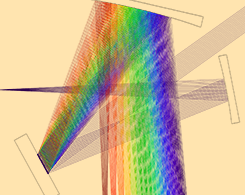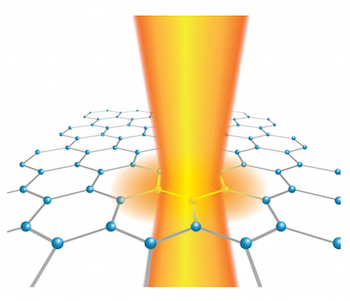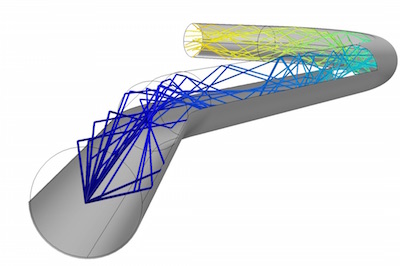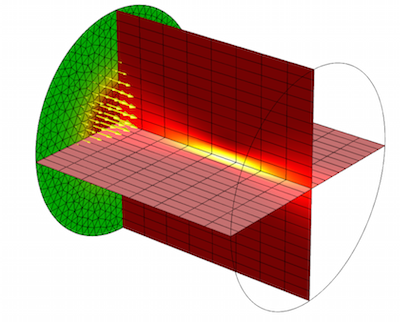Ray Optics Blog Posts

Using the New Ray Tracing Algorithm in COMSOL Multiphysics® 5.2a
The ability to trace rays in unmeshed domains, and even release and trace rays outside a geometry, has been available in the Ray Optics Module as of COMSOL Multiphysics® version 5.2a. Learn more.

Studying Laser-Material Interaction with Multiphysics Modeling
To mitigate damage to high-power laser systems, a research team from Lawrence Livermore National Laboratory used multiphysics simulation to investigate laser–material interactions.

Explaining the Pepper’s Ghost Illusion with Ray Optics
Pepper’s Ghost, the famous optical illusion used in theater and “hologram” concert performances, can be explained using ray optics. Learn more and see our homemade Pepper’s Ghost projector.

Should We Model Graphene as a 2D Sheet or Thin 3D Volume?
Graphene is a 2D sheet of carbon atoms that is 1 atomic layer thick. However, is graphene actually 2D or is it just incredibly thin, like a very fine piece of paper? How should it be modeled?

Simulating a Transparent Light Pipe to Optimize Transmittance
Transparent light pipes are used as an optimal source of natural light for underground areas, like subway stations, and areas without a lot of natural light, like prisons.

Modeling Laser-Material Interactions in COMSOL Multiphysics
When it comes to modeling laser-material interactions and heating, different modeling techniques are appropriate for different problems. We go over a few examples here >>

Modeling Thin Dielectric Films in Optics
Interested in modeling optical systems with dielectric films? Get an overview of some of the built-in tools in the Ray Optics Module for these modeling scenarios.

Ray Tracing in Monochromators and Spectrometers
Spectrometers are optical devices that measure some property of radiation as a function of its frequency, while monochromators transmit radiation of a specific frequency.
